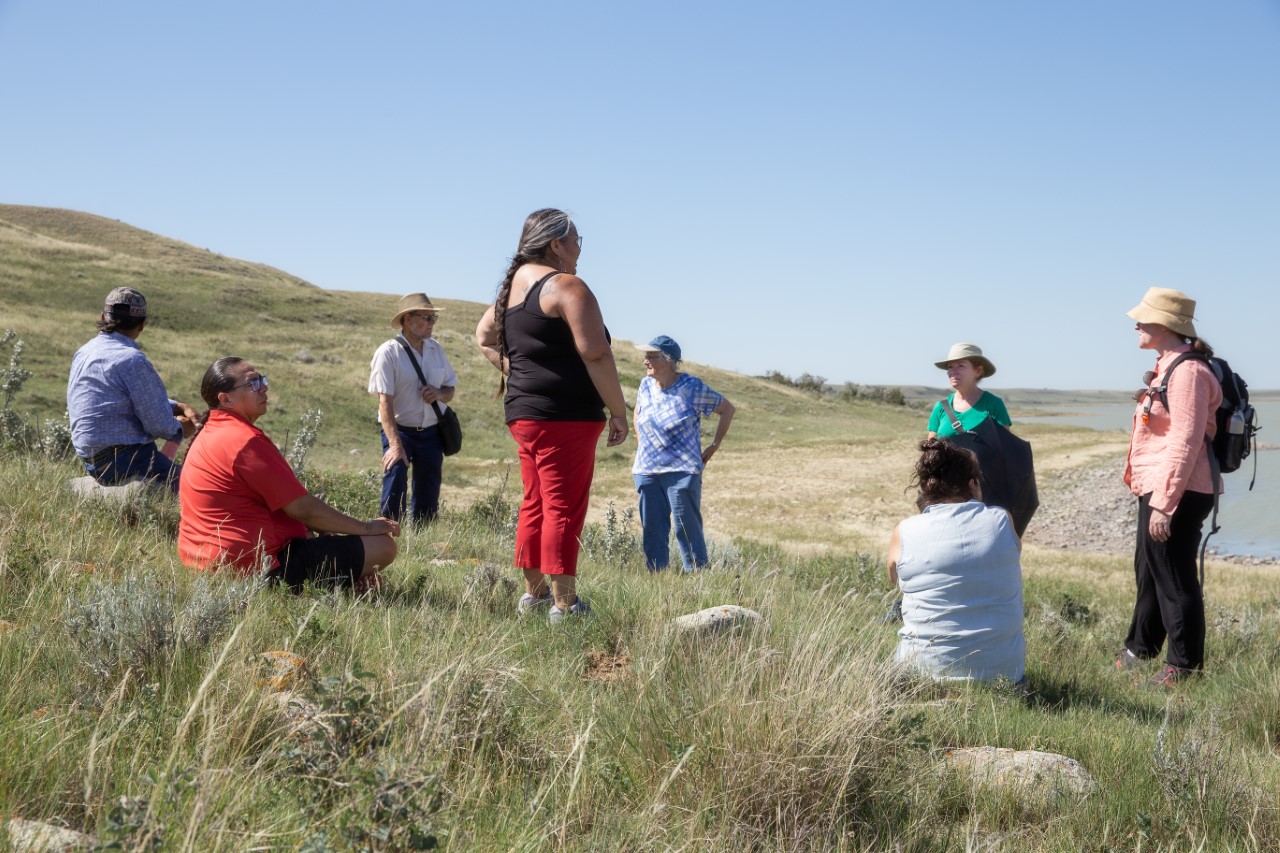Today, July 15, is the official launch of the Treaty Land Sharing Network, a group of farmers, ranchers, and landowners who have come together to start the crucial work of honouring the treaties made with Indigenous peoples.
A ceremony and press conference were held this morning north of Davidson on Treaty 4 territory at the farm of Mary Smillie and Ian McCreary, with over 80 people in attendance. Smillie says that over the years, she has come to understand the need to abide by the original intent of the land treaties signed between settlers and the Indigenous peoples.
"The treaties were intended to make sure that we share the land. The idea is that under the treaties, the farmers are free to use the land and earn a livelihood from it, but that having a title to the land doesn't necessarily entail ownership of it in that way that we think of it, or the authority to exclude Indigenous people."
In other words, farmers have the right to farm, and Indigenous peoples have the right to carry out their inherent practices on the land. However, since the signing of the treaties, settler communities and government officials systematically reduced the amount of land that Indigenous people had legal access to, also reducing their capacity to maintain their culture.
"For Indigenous people to practice their way of life, they need access to land to gather medicines, sacred rocks, or wild game," says Smillie. "So very simply, this is about people who hold title to land learning to share that land."
Smillie admits that that process is challenging, but says that it is one that needs to happen. Ever since the Truth and Reconciliation Commission and its 94 calls to action were published, more and more Canadians have become aware of the need to heal Indigenous and settler relations.
"The treaties were based on principles of mutual recognition, mutual respect, and shared responsibility for maintaining healthy relationships into the future," adds Smillie. "I don't know why anyone would be opposed to that. It's the right way forward."
Smillie, who describes herself as "a nurse by training, and a farmer by marriage," says she's focusing on land-based reconciliation because of her own experience of living close to the land.
"I worked as a medical consultant in the North West Territories. It was my job to find out what the Indigenous communities needed in terms of improved access to healthcare. Just about universally, the response was, 'We need more on the land programs.'"
Smillie says that she didn't understand what 'on the land' meant at first. However, years later when she became a farmer and spent more time in nature, she grew to understand the concept better.
"Being on the land is soul-restoring. Nature nurtures, and we need to have access to the land in order to heal ourselves."
As she has opened up her own land to use for Indigenous people Smillie says it has been a beautiful experience of building relationships and learning new habits of thinking, communicating, and decision making. She says that sharing the land with others who approach it differently has taught her more than she could have known otherwise.
"We had some Indigenous elders visit our land and they found over 40 different medicinal plants in just one tiny group of trees. That inspires me as a health provider and tells me that there is so much more that we can learn if we have different ways of looking at the land."
According to Smillie, every farmer loves their land and their access to it. She hopes that through the work of the Treaty Land Sharing Network, broader access to traditional lands will help heal some of the tensions between settlers and the original inhabitants of the land.
"I really think that there are only upsides to this. I'm not trying to say that there won't be challenges, but it really is about us starting to change our way of thinking."
A total of 14 landowners in Saskatchewan are currently members of the Treaty Land Sharing Network and Smillie hopes that even more join now that they have officially launched. Participating farmers will receive metal signs that they can place around their property to indicate that Indigenous land users are welcome. Farmers can list their phone number on the sign as well and anyone entering the land for the first time is advised to call ahead.
The network is also launching its website today where participating farmers and ranchers can list their farms and where Indigenous land users can connect with them.


















